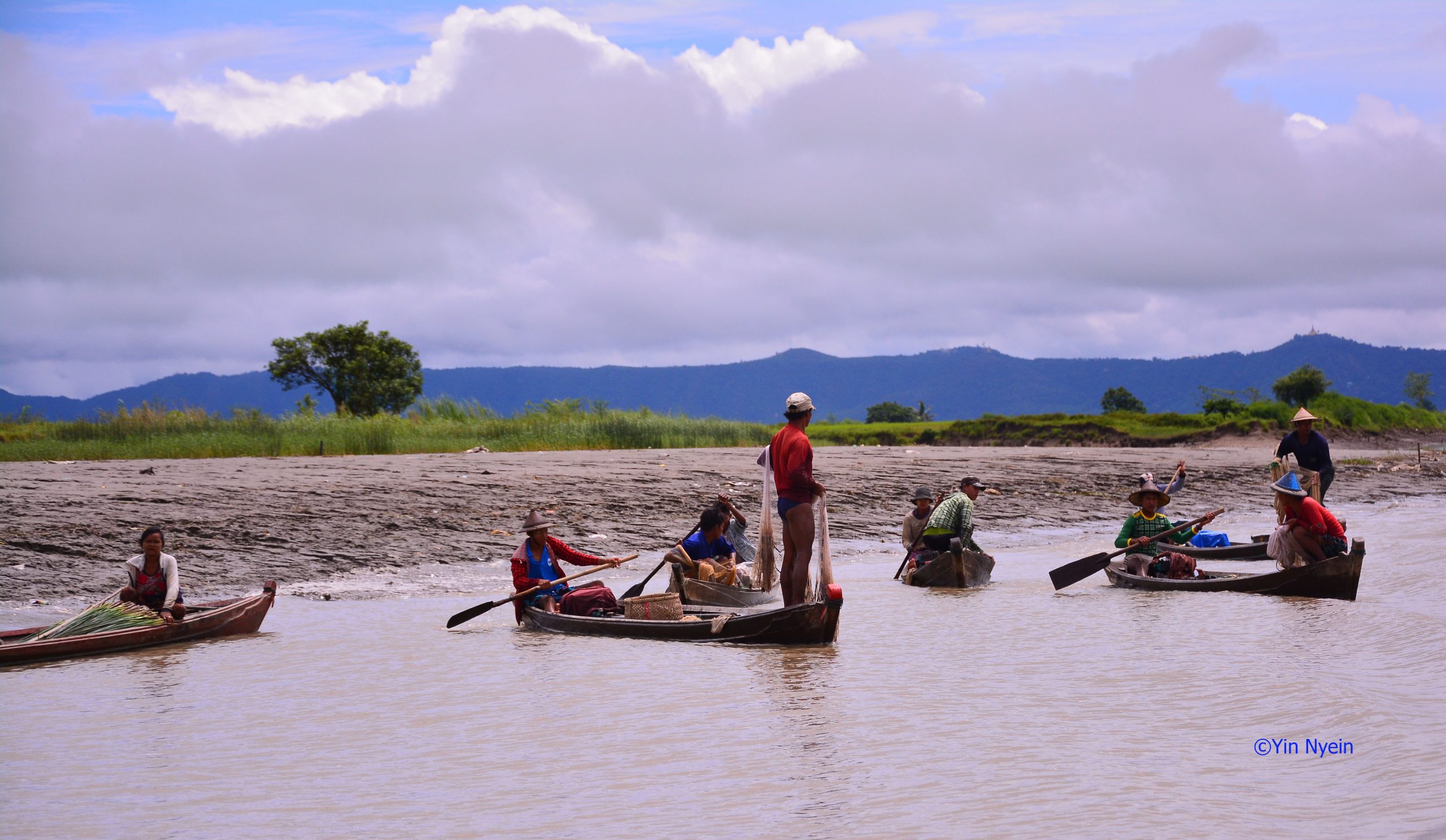
Living on the edge of land, coastal fishing communities have to often deal with major natural disasters. When at sea, fishers risk dangers of unpredictable weather. The vulnerability of small-scale fishers results not merely from such risks but also their marginal social and political state.
Natural disasters do not discriminate. They hit all who come in range. How people cope with their assault and how they recover from their destruction, though, is a completely different story. Social standing, financial viability, political and environmental conditions—they all determine the vulnerability and ability to recover.
Already under the threat of pollution, biodiversity loss and increasing competition for resources, climate change has further endangered them in both marine and inland fisheries. Natural disasters are becoming more frequent. They occur with increasing intensity and destructive force. This is exactly what climate scientists have been projecting.
Ockhi, a tropical deep depression in the Indian Ocean off southern India, intensified into a cyclonic storm on November 29, 2017. It savaged fishers out at sea over four days, killing more than 350, injuring many, destroying vessels and fishing gear.
The tsunami on December 26, 2004, followed the most powerful earthquake in 40 years underwater near Indonesia. It sent a 40-foot-high wall of water barrelling at high speed, crashing into the coasts rimming the Indian Ocean. Killing more than 250,000 in six countries. Fishers were the worst hit.
Climate change has reduced the viability of fishing operations across the board, especially hitting women, who have to pick after everybody else. Rising sea levels, the changing physical and chemical state of the marine waters, the resulting effects on marine species, increasing competition over scarce resources…
All efforts to mitigate climate change must be based on studying their social impacts. Managing these risks and adapting to them requires financial and technological transformation. Monitoring of the effects of climate change is as important as compensation from human-made disasters like pollution, oil spills with compensation. Human rights is the cornerstone of dealing with this challenge, demanding a focus on the most vulnerable.

ICSF is undertaking a range of initiatives to highlight the social and political dimensions of disasters and climate change, particularly of Covid-19. It also draws attention to the impact of climate change on fisheries resources and on fishing communities and advocate for appropriate and socially-just adaptation and mitigation measures. In December 2020, Covid-19 had spread to over 200 countries and resulted in the deaths of over 1.3 million people. As the coronavirus remerged in second and third waves in many parts of the world, ICSF undertook case studies in four countries – Cambodia, Indonesia, Sri Lanka and Mozambique – to document the impacts of the pandemic on the lives and livelihoods of vulnerable small-scale fishing communities, particularly in the marine and inland capture fisheries value chain. While lockdowns and the restrictions on movement of people and goods disrupted fish production and supply chains, the economic slowdown and reduced incomes led to a decline in demand for aquatic foods. Small-scale fisheries contribute significantly to domestic food security and livelihoods, and this is especially true in the selected countries. In this context, the studies examined whether pandemic control measures reduced access to fish and aquatic foods for low-income and vulnerable populations. Covid-19 also impacted small-scale fishers and fish vendors’ access to domestic and international markets. In the countries that were able to provide social protection measures, the case studies analyze their effectiveness and inclusivity of fisher and fishworker families. Today, the Covid-19 case count is over 164 million and nearly 3.5 million people have lost their lives. While the four countries had witnessed relatively low rates of infection at the time of the studies, some are now experiencing a sharp rise in infections and fatalities. Thus, small-scale fisheries need support to adapt and recover from Covid-19, to protect lives and livelihoods and to enhance their contributions to food security.
The State of Food Security and Nutrition in the World is the most authoritative global study tracking progress towards ending hunger and malnutrition. The report argues that once sustainability considerations...
Sea erosion continues to wreak havoc on villages along West Africa’s shoreline, threatening communities. Many homes on the coast of Ghana’s Volta region have been destroyed by waves in recent...
We quantified the dynamics of socio-economic vulnerability to climate-related hazards. A decreasing trend in both human and economic vulnerability is evident. Global average mortality and loss rates have dropped by...
This video was produced by CANARI with contributions from Montserrat fisherfolk and other coastal and marine resource users, as part of the Darwin Plus-funded Climate Change Adaptation in the Fisheries...

This publication presents FAO’s work on climate change and fisheries and aquaculture. It includes examples of FAO’s support to countries so that they are better able to adapt to the...
This report focuses on two aspects of fishery workers’ rights: the essential role that fishery workers play in contributing to the food security and nutrition of others, thus enabling the...

Based on findings from on-the-ground investigations carried out in India, Vietnam and The Gambia in mid-2019, this report presents damning evidence that the production of fishmeal and fish oil (FMFO)...

This book offers thoughtful reflections about small-scale fisheries. His essays provide the public with a way to understand the ‘why’ question of social science research, at the same time encouraging...
Disregarding the role of management in driving current and future catches is not only incorrect but it also removes any encouragement for management agencies to improve performance. It is concluded...
It documents 12 emerging threats to freshwater biodiversity that are either entirely new since 2006 or have since intensified: changing climates; e‐commerce and invasions; infectious diseases; harmful algal blooms; expanding...